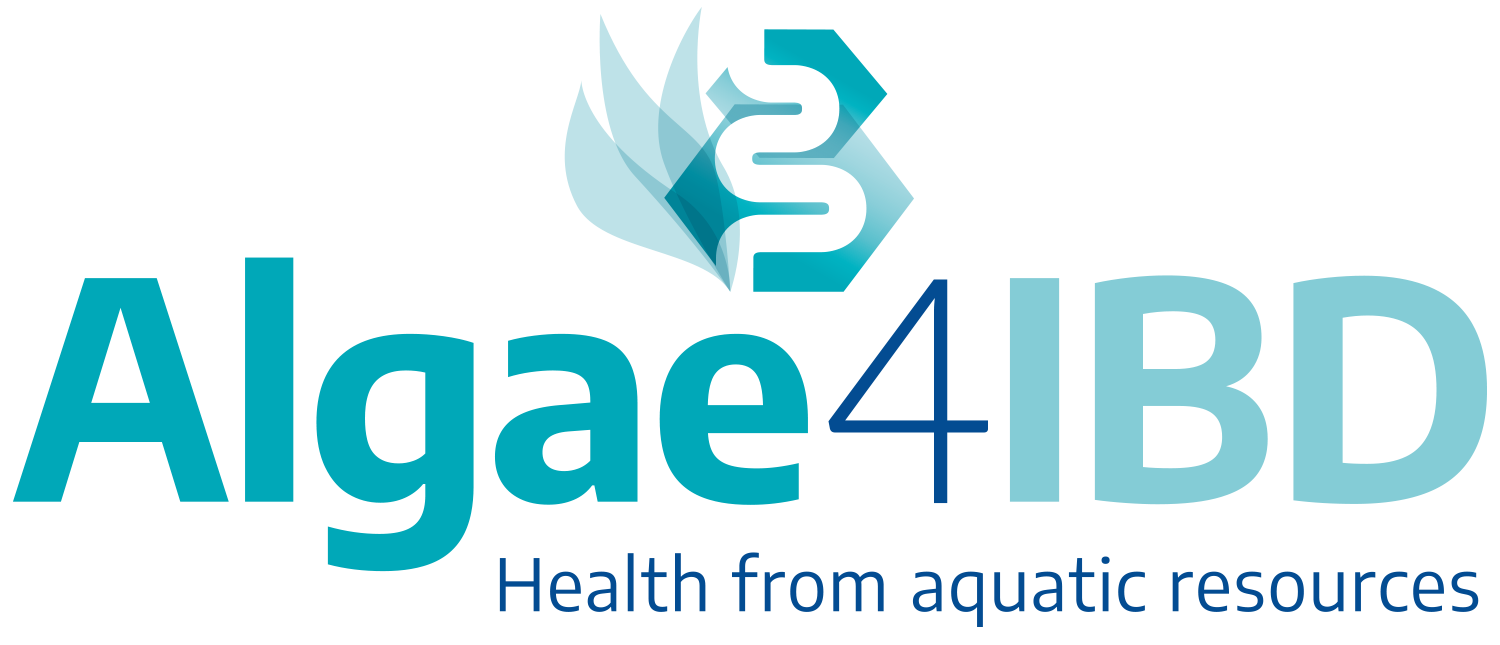Contacts: Dr. Dorit Avni and Prof. Uri Marchaim
Emails: dorita@migal.org.il and uri@migal.org.il
ALGAE4IBD – FROM NATURE TO BEDSIDE- ALGAE BASED BIO COMPOUND FOR PREVENTION AND TREATMENT OF INFLAMMATION, PAIN AND IBD
What if the solution for a chronic disease lies in our ocean, rivers, or lakes? The EU-funded Algae4IBD project will answer this question.
Global biodiversity remains a largely unexploited resource for natural bioactive molecules with an enormous potential for developing commercial products with public health benefits. Micro and macroalgae, found in marine and freshwater, have been identified as promising sources of bioactive compounds, which have a wide range of bioactivities, including antioxidant, anti-inflammatory and cancer preventive. The goal of Algae4IBD is to research, identify and develop a set of novel small molecules derived from macro-and micro-algae of different origins to provide a solution for prevention and treatment of Inflammatory Bowel Disease (IBD).
IBD is a chronic inflammatory disease that represents a group of intestinal disorders in which there is prolonged inflammation and damage to the digestive tract. It is painful, disruptive, and in some cases, even life-threatening and has no effective treatment. Millions of patients worldwide suffer from IBD, with a continued increase in incidence. The prevalence of the two main types of IBD, ulcerative colitis and Crohn disease, increased by 55% and 83%, in 2000 and 2017, respectively. IBD is also associated with colorectal cancer, with a significantly elevated risk of 23-43% compared to the control population.
Algae is a natural renewable resource. Among its various species, there are potentially valuable bioactive compounds to be found. For example, recently an innovative small molecule in the microalga Nannochloropsis was reported to have the potential to be anti-atherosclerotic. Thus, the consortium will create an innovative ‘natural source to bedside pipeline’ in order to identify novel small molecules from micro- and macroalgae for the prevention and treatment of inflammation, pain and IBD. In addition, the consortium will establish a unique and exclusive Algae4IBD algae strain bank for pre-indicated and understudied micro and macroalgae in order to provide extensive knowledge related to their bioactivities for the development of product prototypes for inflammation, pain and IBD. Not only are these natural substances intended for treatment (pharmacological use), but also for algae-based prevention (e.g. functional food, food supplements).
The Algae4IBD consortium is made up of academic and research institutes, hospitals, as well as companies with expertise in algae cultivation and extraction, food development and pharmaceuticals. It has 21 partners from Israel, Norway, Portugal, France, Ireland, Italy, Hungary, Belgium, Czech Republic, Germany and Slovakia, with MIGAL of Israel as the coordinator. The project will have a duration of 48 months. The consortium proposes innovative solutions for increasing the use of algae-based ingredients and for ensuring the science-based improvement of nutritional quality and its effect on public health. The researchers, companies and hospitals involved in the different stages of the project will use the biodiversity of algae, both micro and macro, as a wide source for bioactive compounds using state-of-the-art cultivation and extraction technologies for obtaining sufficient amounts of the bio-active molecules, along with novel processing protocols. The result will be novel algae-based, high-quality bioactive compounds of good manufacturing practice (GMP) grade and lower costs for dual purposes – IBD prevention and treatment with relevance to the food as well as the pharmaceutical industries.
This project has received funding from the European Union's Framework Programme for Research and Innovation, Horizon 2020, under grant agreement no. 101000501 — Algae4IBD.

